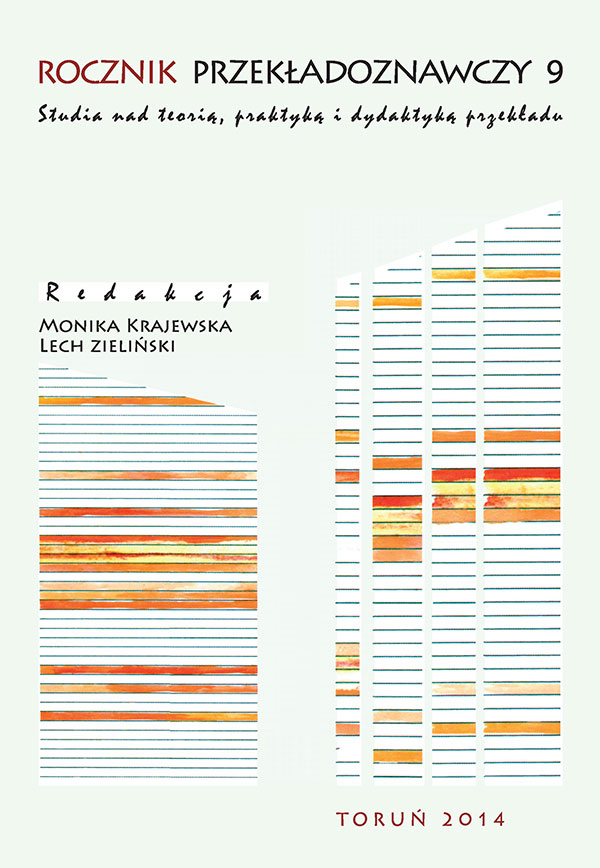Too perfect translatability?
DOI:
https://doi.org/10.12775/RP.2014.016Keywords
humour translation, comical effect, untranslatabilityAbstract
The article focuses on the question of the untranslatability of humour. Jokes challenge translators as humorous texts are very carefully constructed and aim to become comical stimuli that provoke laughter. Therefore, the author of the article attempts to describe the main characteristic of humour: first of all, incongruity and the theory of opposite scripts. While analysing the comical mechanism of a Polish joke, the author emphasises the importance of other sources of the comical effect: references to culture, history and general knowledge. It is assumed that the linguistic play, or wordplay, does not necessarily convey a comical effect, and the source of laughter is rooted deeper in the “image of the world” encoded in the language. The assumption is based on the survey which aims to search the group of references to the word bar encoded within the Polish and Spanish languages. It has been indicated that sometimes lexemes which seem to be perfectly translatable become culturemes, whose description and function within a language and culture differ considerably, and this may hinder the comical mechanism.
References
Awdiejew, A., 1992, „Nieśmieszne aforyzmy (Refleksja nad semantyką humoru Viktora Raskina)”, [w:] Język i Kultura, nr 8, s. 279 –286.
Barańczak, S., 1992, Ocalone w tłumaczeniu, Poznań.
Bartmiński, J., 2012, Językowe podstawy obrazu świata, Lublin.
„En Espana hay un bar por cada 132 habitantes”, [w:] abc.es, http://www. abc.es/sociedad/20130521/abci-habitantes-201305211530.html (dostęp: 15 grudnia 2013 r.).
Hejwowski, K., 2012, Kognitywno-komunikacyjna teoria przekładu, Warszawa.
Kozak, J., 2009, Przekład literacki jako metafora. Między logos a lexis, Warszawa
Luque Nadal, L., 2009, „Los culturemas: .unidades linguisticas, ideologicas o culturales?”, [w:] Language Design, nr 11, s. 93–120.
Rynkiewicz, J., 2012, „Kognitywne spojrzenie na poczucie humoru”, [w:] Via Menti, nr 1, s. 85–98.
Wierzbicka, A., 2003, Cross-cultural Pragamtics: The Semantics of Cross Cultural Interaction, Berlin–New York.
Vandaele, J., 2002, „Humor Mechanism in Film Comedy, Incongruity and Superiority”, [w:] Poetics Today, nr 23(2), s. 221–249.
Vandaele, J., 2010, „Humor in Translation”, [w:] Handbook of Translation Studies, Y. Gambier, L. van Doorslaer (red.), Amsterdam–Philadelphia, s. 147–152.
Downloads
Published
Issue
Section
Stats
Number of views and downloads: 1195
Number of citations: 0



